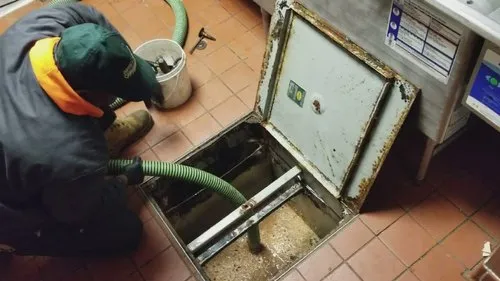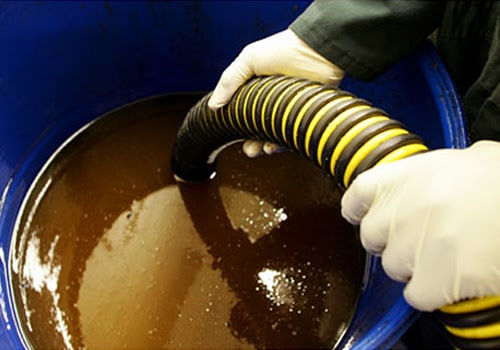When they said that one man’s trash is another man’s gold, they must have had the cooking oil recycling company in mind. Today, more than 4 billion pounds of used cooking oil are generated in North America (The USA and Canada) alone. Of course, a huge chunk of this comes from the massive US food industry.
If you are in the food business, that is, as a restaurateur, you can earn extra money by engaging the services of a cooking oil recycling company. They will collect all of your used cooking oil, and pay you for it! Besides, you will also be doing mother nature a good turn since the oil will not be ending up in landfills or in the sewerage system where it clogs pipes.
To enjoy such perks, though, you have to have a good used cooking oil handler for the job. Today, there are many companies that offer such services and choosing a good one can be a bit challenging. But that is why you are reading this, to see vital tips on how to pick a recycling company for your used frying oil.
1. Check their portfolio
Before you hire any service provider for any kind of job, always look at their portfolio of current and past projects similar to yours. That will let you gauge their expertise properly. If you generate a lot of used cooking oil daily, you want to be sure the recycling company can handle the capacity.
When the used oil recycler that you want to use serves other restaurants in the area, it means they are good.
If they serve restaurants that are smaller than yours, perhaps it means they don’t have the capacity to serve big businesses. It always boosts the confidence to know that the company you are working with is trusted by several other big businesses in your area.
Sometimes, you might not be able to find a company fast. You can reach out to a restaurant and ask them who handles their fryer oil. They will share the information with you.
2. Always go for the most experienced
There is really nothing wrong with using a start-up recycling company, but when you are a big and busy restaurant, you know you cannot take any chances at all. Therefore, you want to go with the company that you are sure can handle your business fast.
If you generate a lot of oil from the fryers, you need it to be collected in good time, you need containers to store the oil in. Having too much old cooking oil around is not good because it is going to start breeding bacteria, and attracting rodents. You do not want such around your food business.
Check how many years the company has been in business, and the more, the merrier. It means they have all the equipment, the staff, and the experience. Instead of working with a start-up that is barely a year old, work with a company that has been in business for at least two years.
3. How easy it is to get in touch with the contact person
In the restaurant business, you will find that on some days, the used oil can pile up really fast and fill the available containers earlier than anticipated. In that case, you would need to call the company to send the collection team. Therefore, you need a company that is reachable any time of the day or night.
If the containers start overflowing, they can put your business at serious health risks, because bacterial start to breed in the oil. Since the oil contains small food particles, rodents will also be attracted.
At times, you might also have to reschedule the collection, for instance, if the place gets too busy with customers, you need to call the company to bring more containers, or reschedule their collecting time. In short, the organization needs to be ready to work according to your schedule all the time.
Restaurant businesses are dynamic, and some weeks are busier than others. This is why you need to know that you have a good collection service for used oil backing you, ready to juggle their schedule to fit yours.
4. Education
Used cooking oil collection services should not just bring the containers to hold the oil, but they should also give your kitchen staff an education about collecting, and handling such oil safely.
For instance, most people just pour the used oil down the sink, but this is not right because it could overwhelm the grease interceptor.
Used oil should never be poured down the sink because then, it solidifies and starts clogging the pipes. Besides, if it finds its way to the sewerage system, it is going to cause a serious back-up into the streets.
On their website, they should have information about how the restaurant employees should handle old cooking oil, how to clean fryers, proper disposal of oils, and fats, and many more.
Also, letting such oil get into the sewerage system can attract penalties from the authorities, and you really don’t want that.
5. Their recycling process
You need to be sure that the company that is handling your used cooking oil is ensuring eco-friendliness in every part of the recycling process.
They should also ensure that the by-products of the recycling process do not find their way to the landfills, where they can eventually leak into the water table.
Look for a guide about the process from the start to the finish. Also, look at the basics. For instance, are the containers recyclable? Do they follow the best practices? Have they won any awards? Do they support other eco-friendly causes?
6. Check their accreditation
Because of the sheer size of the used cooking oil industry, there is a lot of documentation needed, from the authorities, and the environmental agencies.
This is an assurance that the company handles the oil responsibly and that none gets to where it is not intended. The company should have all of their credentials displayed on their website and in their offices. They should also be ready to disclose information regarding where they are registered and whether they have the right certification.
Conclusion
Recycling your used cooking oil is a good idea, and it can earn you extra revenue. Besides, it is so convenient because the recycling company like Grease Collection gives you the collecting containers, collects the oil, and leaves more empty containers.
If you had to deal with the disposal of the old oil yourself, it would be too overwhelming, because a restaurant can generate copious amounts of used oil daily.
There is also the issue of healthy handling, and preventing the oil from going down the sink, where it could cause plumbing issues.
Must Read: Surprising Benefits of Utilizing Used Cooking Oil Collection Services


